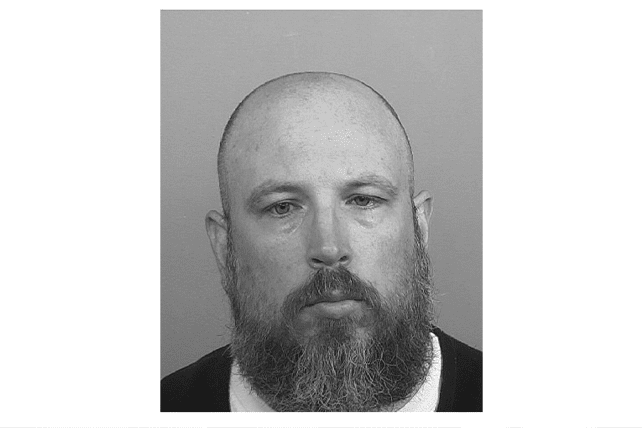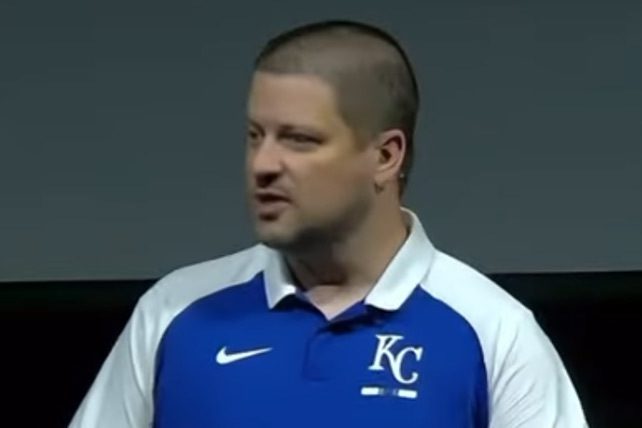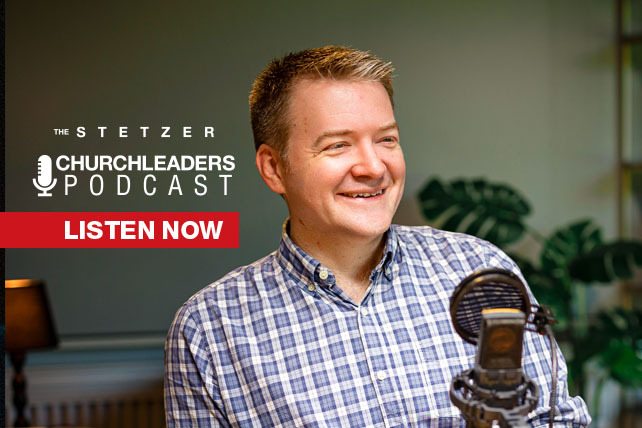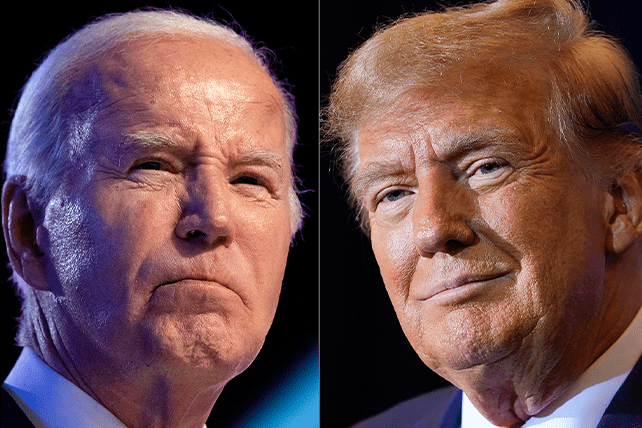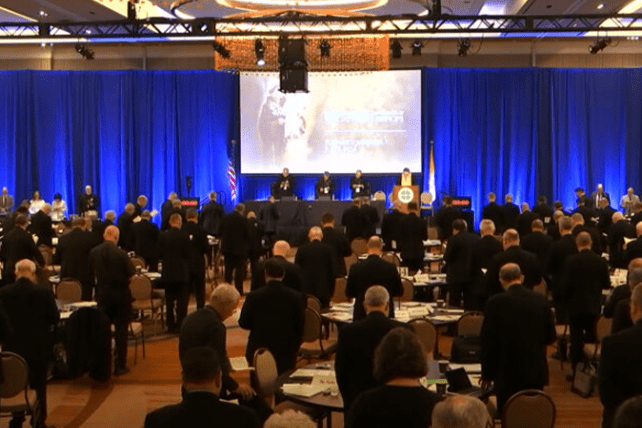Justin Brierley on The Stetzer ChurchLeaders Podcast.mp3: this mp3 audio file was automatically transcribed by Sonix with the best speech-to-text algorithms. This transcript may contain errors.
Voice Over:
Welcome to the Stetzer Church Leaders Podcast, conversations with today’s top ministry leaders to help you lead better every day. And now, here are your hosts, Ed Stetzer and Daniel Yang.
Daniel Yang:
Welcome to the Stetzer Church Leaders Podcast, where we’re helping Christian leaders navigate and lead through the cultural issues of our day. My name is Daniel Yang, national director of Churches of Welcome at World Relief. And today we’re talking with Justin Brierley. Justin’s a UK broadcaster, writer and speaker who’s hosted the unbelievable show in the Ask N’t Write Anything podcast for many years. He’s currently the host of the Re-enchanting podcast, as well as a newly launched documentary podcast series named after his latest book, The Surprising Rebirth of Belief in God. Now let’s go to Ed Stetzer, editor in chief of Outreach Magazine and the dean of the Talbot School of Theology. Yeah, so I.
Ed Stetzer:
Enjoyed this book, and I think it’s I want to talk about some of the questions that are there. I recently, uh, talked a little bit about this in a sermon at Mariner’s Church, where I serve as a teaching pastor. And of course, Alister McGrath has a book that’s sort of in and around this lane. And so so the question is, I mean, again, the thesis is and again, the thesis of the book is that there’s a surprising rebirth of the belief of God. And we’ve seen this some on social media when unpack this. But we have to sort of because our audience is pastors and church leaders, not necessarily people are all apologists or kind of aware of things like New Atheism and things of that sort. So let’s go back a bit to those who might be unfamiliar, which probably most people are not engaged in this conversation. What’s the New atheism and what happens in the mid to late 2000 in and around the New Atheism?
Justin Brierley:
Well, New atheism was really a phenomenon, as you say, around the mid 2000, kind of very much on the coattails of nine over 11, and the sense that religion might be bad for us and was led essentially by arguably four key people um, Sam Harris, Richard Dawkins, Christopher Hitchens and Dan Dennett. These were public intellectuals who had a big platform, and they wrote these best selling anti-God books became very popular. There were lots of speaking tours. It was quite a kind of publishing phenomenon, a media phenomenon. You may remember in the UK, we had the The Atheist Bus campaign saying, there’s probably no God. Now stop worrying and enjoy your life. These were red London buses circulating the capital, and I guess maybe the equivalent in the US was the reason rally in 2012, where we had lots of secularists and atheists turning up on the mall and Washington DC just to to champion for science and reason and, and effectively to ridicule religion. And and that was an important part of the movement. It was it wasn’t afraid of being very brash, confident, derogatory. Um, and so this this was kind of. Yeah, just what the atmosphere was when it came to the public conversation on Faith and I suppose was part of that milieu, speaking to a number of those folk who were those more militant kinds of atheists in the, in the mid 2000 onwards.
Ed Stetzer:
Yeah. And it was, it was um, I would say in some ways it was bigger in the UK. I mean, most people weren’t, weren’t familiar with that rally that maybe they’re their majors thing might have been seeing the Bill Maher um, or Religulous I think was the religion and uh, his and that was 2008. The and statistically I make the joke about the rise of New Atheism that you said it was a rise of publishing and conferences, and it was because statistically, we didn’t see a big bump in atheist people identify as atheist. Now you need you know, I don’t know if it’s the same in the UK. Uh, but Americans perceive atheists negatively. They have a, you know, negative view of atheists. So people tend to be less likely to identify in that way. Maybe agnostics are a little safer or just the nones and nothing. So I, I made the joke that I think all the Christians were buying those atheist books to find ways to answer them, but but, you know, there’s there’s still a lot of people who are moved. Yeah.
Justin Brierley:
You might be right there. You might be right. I mean, certainly The God Delusion, I think, sold over 3 million copies. So. So it did. Well, yeah. And as I say, it was the a publishing boom of sorts, a mini one in. Oh no.
Ed Stetzer:
Question. And I read it and all my Christian friends read it.
Justin Brierley:
Yeah. And, and I think at the time it was, it was kind of cool and edgy in a way, I think I think now looking back on it, it feels a little bit passé and a bit a bit obvious almost. But at the time it did feel kind of cool. And you were kind of in the Cool Gang. If you were kind of being snarky about religion and doing that Bill Maher stuff and all of that. So I think, I think that was where the energy was, at least in some kind of cultural elites. Um, as you say, it can look different on different sides of the pond, but I definitely noticed it here. And and certainly in certain certain parts of America.
Ed Stetzer:
Yeah. The bus came. We had news stories about the bus campaign over here. Um, okay. So though so, but eventually and part of the theme of your book, The Surprising Rebirth of Belief in God, is that the New Atheism didn’t provide the answers that people were thinking, didn’t catch on. And there’s been some I don’t know what the right term is, but backlash or response or some to it. So why do you think it failed?
Justin Brierley:
Well, I think there’s a few different reasons. Firstly, there was a kind of an internal meltdown and I kind of document this in the first chapter of the book. Basically, once the New Atheists had agreed that God didn’t exist and religion was bad for you, they really. Couldn’t agree on much else thereafter, because suddenly they began to have all kinds of fallouts over where their movement should head. There was one faction that wanted to take it in the direction of so-called atheism plus, which meant, yes, atheism, plus a commitment to, uh, feminism, LGBT rights, certain social justice movements, and so on. And others like Richard Dawkins himself, who felt this was just political correctness and we just needed science and free thinking. So there were some pretty big bust ups, actually, within the New Atheist community, to the point where a lot of these figures were unwilling to share platforms with each other. A lot of atheist conferences were getting canceled, and a number of the leaders of the New Atheism themselves got tarnished with sort of accusations of misogyny and, uh, homophobia and transphobia and all the rest of it.
Justin Brierley:
Even Richard Dawkins himself famously had his humanist of the year award rescinded in 2021 because of his, you know, doubling down on transphobia, transgender ideology and so on. So it was it was an interesting to see that the internal disputes that kind of led to the movement somewhat unraveling. But beyond that, I’d say it did actually fail, as you say, to answer people’s questions. Ultimately, I think. Science and reason, they’re great for some things, but they won’t ultimately give you a reason for living or getting out of bed in the morning. Um, they’re not there to tell you what the purpose of your life is. And I think people still had those questions bubbling away, and they didn’t go away. They didn’t get answered by, you know, the wonder of science. And that’s where I think you saw a lot of people kind of on the heels of New Atheism as it began to wane, start to raise those questions in a meaningful way for people again and, and potentially point them in the direction of religious answers.
Daniel Yang:
You know, Justin, I’m sure you heard a couple of weeks ago, Dawkins came out, um, talked about how he sees himself as a cultural Christian and even bemoans the decline of Christian culture. Um, can you explain why why he’s saying that? I mean, your thoughts around that? Yeah, it’s.
Justin Brierley:
A fascinating shift, isn’t it? And I’ve seen Dawkins himself, Melo, an awful lot since the heyday of the New Atheism. I had him on my unbelievable show a few years ago in a conversation with Francis Collins, and what was noticeable about that was that his tone had really changed. He was far less bombastic, far more open to a civil dialogue, even treated Collins as a friend in many ways because of the kindness he had shown to their their mutual friend Christopher Hitchens during the time of his cancer diagnosis. But, um, what I’ve noticed with, with, um, Dawkins and many of the new atheists is that I think what they’ve realized is that we’re all inherently religious, actually. And if we don’t get religious about Christianity or institutional religion, we will get religious about something else. And and this is a good example. When he got his humanist of the year award stripped from him because of his sort of being anti kind of transgender ideology. And I think what he’s recognized is that things like that kind of do serve as a new kind of religion to many people. When they lose the Christian story, they will replace it with some other sacred story. And for many people, it is a story around sexuality or gender or identity, just as it can be. You know, on the right wing, a mythology around politics or something else. And I think Dawkins has just come to realize, well, actually, we’re religious, whether we like it or not. And I think he’s realized that in some ways, Christianity is the most benign of all the religions out there, including some of these ideologies and so on that he’s had to confront. And so I think that’s why he’s softened and says, actually, I’m happy to call myself a cultural Christian because I think he’s even Richard Dawkins has come to recognize that Christianity has actually been quite good for us in various ways. It has some benefits, even if he doesn’t believe it’s true. So it’s been interesting to see that shift.
Ed Stetzer:
Yeah. And it’s probably important to note. I mean, anthropologists have, um, just assumed that religion is a universal human concept. We’ve never found an unengaged, discovered culture that doesn’t have some expression of religion. You can eventually get out of that. You know, an atheism becomes ascendant. We saw that in other places. You know, we saw Albania once announced that it was the first true world’s truly atheist state. But every culture has religion until it talks itself out of it. So the question then is, is what now? Now again, for me as a Christian, you know, I think they’re all shadows or reflections of the true reality of the good news of the gospel. So? So why why do you think you’re seeing this happen? Maybe I’ll start with this. What led you to start looking at this trend of secular Christians assuming secular thinkers becoming open to Christianity?
Justin Brierley:
I guess I first really started to take notice of this in around 2017, 2018 when, um, when, um, uh, Jordan Peterson of all people, was seeing thousands of young men turning up for three hour lectures on the book of Genesis, and I started to hear talk of this, you know, somewhat, um, strange psychologist from Canada attracting all these young men. And, and I got intrigued, and I eventually invited him to come on for a discussion. And when he came on opposite. An atheist psychologist, Susan Blackmore. He sounded for all the world like a Christian apologist because he was talking about the the way in which we can only think about human freedom and value in terms of Genesis and being made in the image of God. But of course, Jordan Peterson isn’t a Christian as far as I’m aware. He kind of struggles with the whole God thing, but yet he was directing all of these seekers, these meaning seeking millennials and Gen Z towards the Christian faith. Yes, in a slightly abstract Jungian psychological way. But nonetheless he seemed to be opening a door for them. So I was fascinated by this, because this is certainly someone who was essentially attracting the same audience as had been turning up for Sam Harris and Richard Dawkins. So, so it was so interesting to see them flipping from kind of turning up to kind of deride the Bible, you know, only ten years previously to now kind of sitting in rapt attention at this person, telling them that actually the Bible was full of wisdom and meaning and these stories that kind of define what it means to be human.
Justin Brierley:
So. So he was kind of the catalyst for me just looking at this more and more. And I suddenly started to see more and more of these secular thinkers who were very much standing against that dismissive attitude of the New Atheist. And even though they didn’t necessarily believe in it, they didn’t necessarily call themselves Christians. They were nonetheless very open, sympathetic to the value of faith. I saw this with people like the historian Tom Holland and his book Dominion, when he wrote that Douglas Murray, a quite a well-known secular cultural thinker here in the UK. Again, when I had him on my show, he described himself as a Christian atheist, you know, a contradiction in terms, obviously, but but essentially what he meant was I just acknowledge, even as I don’t believe in Christianity, that all my values essentially come from Christianity. And so the more that I saw some of these folks popping up, I realized there’s something happening here. Um, there’s been a definite shift in the atmosphere. These are not people dismissing and belittling Christianity. They’re taking it very seriously. And actually, these were people with fairly large platforms as well. I mean, to take Tom Holland, you know, he he co-hosts the most popular history podcast in the world, and he frequently talks about the value of Christianity on it. So, so I was just fascinated by the way in which the tone of the conversation seemed to seem to be shifting in this way.
Daniel Yang:
Yeah. I mean, if you think about, uh, sort of the era that you were talking about the late 90s, early 2000, I mean, so much of how Christian apologetics was essentially presuppositional presuppositional apologetics. And I’m curious, I mean, from what you’re seeing with Jordan Peterson, I mean, he really shifted the conversation on, like, how do we make meaning? What’s the foundation for how we make meaning? And so do you see some of these, like, shifts as positive outcomes for how Christians can engage in apologetics moving forward in this new atheism?
Justin Brierley:
I think so, because sometimes I think Christians can get stuck answering questions from 10 or 15 years ago, and those are important questions, don’t get me wrong. And I spent a lot of my career kind of doing battle with the New atheists, you know, hosting conversations between Christians and atheists in the, in the, the vein of Richard Dawkins. But in the end, I think it’s important for us to recognize that sometimes the questions do change. And I think they have in the last ten years.
Ed Stetzer:
The sets are church leaders. Podcast is part of the Church Leaders Podcast Network, which is dedicated to resourcing church leaders in order to help them face the complexities of ministry. Today, the Church Leaders Podcast Network supports pastors and ministry leaders by challenging assumptions, by providing insights and offering practical advice and solutions and steps that will help church leaders navigate the variety of cultures and contexts that we’re serving and learn more at Church leaders.com/podcast Network.
Justin Brierley:
You’re much more likely now, I think, to find that it’s these existential questions about meaning and purpose that are far higher on people’s you know, I don’t think people are waking up in the morning and saying, I need a philosophical proof for God or five reasons the resurrection really happened. They’re asking, give me a reason to get out of bed in the morning. And that’s where people like Jordan Peterson are stepping in. I think. I think what we’re seeing is the fruition of a meaning crisis in our culture. Um, and I see that in large part down to the fact that we have lost the Christian story, by and large, in the West. And as we’ve lost that that story that once gave many people a sense of their purpose, their meaning and their identity, they’ve gone off looking for it in all kinds of other places. But as I’ve said, these, these aren’t places where you’ll really find fulfillment. You’re not going to find fulfillment by by putting all your meaning, purpose and identity in a, in sexuality or gender or a political project. They’re all false idols in the end. And and so for me, I think that’s why there’s been this kind of return to people asking these questions. And psychologists, you know, like Peterson, Jonathan Hite, John Vervaeke, they’re all identifying this meaning crisis and interestingly, saying maybe we threw the baby out with the bathwater when we rejected Christianity. Maybe there was something in there that. Actually did help us to flourish as human beings. And so that’s the way I’ve seen that that kind of meaning question really come to the fore recently.
Ed Stetzer:
Yeah. So, um, so that is obviously a shift in the way apologists might engage. You know, of course, I’m here at Talbot and we have this very robust apologetics program. We have these kind of conversations, um, as well. So but I guess the question is, I think people can come study apologetics, right? You know, we’d love that. But our audience is mainly pastors and church leaders. So and maybe in a sense, it’s easier for them to have the meaning conversation rather than the evidentialist apologetics conversation with which they may be less familiar. So how would pastors and church leaders themselves, and maybe lead their congregations to engage people who disbelieve in 2024 and beyond?
Justin Brierley:
I think it is about learning where they’re at. Um, and for me. I think Blaise Pascal many centuries ago put it quite well. He said, um, show. I think it was something like this show, um, good men, that they wished Christianity were true and then show them that it is. So I think there’s a sense that we need to create a compelling story again for people of Christianity. We need to engage their imagination as much as their their reason, if you like, and show them why they the things that they’re lacking in their life the longings, the hopes, the the meaning, crisis, the depression, whatever it is, is ultimately answered in the Christian story. And that can be done through all kinds of means, um, through art, through literature. Um, but I think there still is that need for the evidential side. I don’t think we’ve lost that altogether in the process, because at some point, someone will also need to be shown that it is true that the longings that that kind of fit this story so well do actually have a real basis in history, in fact, and philosophy and everything else. So I’m not in any way disparaging that, that side of apologetics. It’s just that I think we need to start probably with actually the the meaning side, the imagination and so on. And, um, and it’s fascinating to see, you know, even contemporary sort of neuroscientists and psychiatrists. Um, I don’t know if you guys have heard of Iain Mcgilchrist, but he’s a fascinating thinker who has really, I think, opened up this whole area with books like The Master and His Emissary, the way that we have this kind of divided brain, and that so often in our culture, and this is especially true of the New Atheists, we’ve tended to focus on left brain thinking, essentially, where we just compartmentalize the world into facts and logic and boil it all down into that purely kind of abstract sort of way of looking at the world.
Justin Brierley:
And he says, we were never designed to do that. We should actually have the right brain, which is all about coherence, big picture thinking, imagination, intuition, and so on. That was supposed to be the dominant hemisphere, and the left was hemisphere was supposed to, as it were, be the the emissary, the servant of the master. And he thinks we’ve developed this technocratic culture which is inhibiting that. And that’s part of why we’re living in this, this meaning crisis. And, and, and, you know, the mental health crisis as well. And so Christianity, I think, needs to kind of, sort of understand that that’s what’s going on at a brain level, partly because actually we’re made to live in a story that makes sense of our life. And so we’ve got to get back to telling that story well, kind of in an imaginative way that appeals to to people’s imagination, intuition that that right side of their brain, because it turns out, you know, as we’ve been discovering, we are inherently religious. And to deny that is, is to kind of deny who we are ultimately so. But but not all religions are are true. Not all are, uh, you know, how should have the same place. And so obviously, like you, I believe all of these other stories are simply dim reflections of the ultimate true story in Christ. And and for me, it’s about how do we how do we put that story back at the center in people’s imaginative lives, as much as we tell them about the kind of evidential reasons why they should believe that.
Daniel Yang:
You know, probably the the American pastor theologian that most would would credit, you know, as sort of, uh, you know, that pastor mix apologist would be, you know, like a Tim Keller. And you think about, you know, he wrote the reason for God. Uh, and then eventually he followed it up with, um, uh, making sense of God. And it kind of illustrates your point here, speaking to like, uh, teaching. So if a pastor is going to, uh, adjust their teaching to accompany both or to accommodate both, both the rational but also the, the meaning making component of this, how might they approach this? And then you also brought in the physiological dimension, as well as how people process in their brain chemistry and all that stuff, like help a church leader think through how this might change the way that they teach and preach.
Justin Brierley:
I think a lot of church leaders are doing this without necessarily having been told to do this. But but I think people respond to story, um, really well, um, and, and I think we need to major on that, um, major on people’s stories on the way in which story can bring across truth in ways that kind of the cold, hard facts and logic can’t necessarily. I think it’s why Jesus obviously spoke in parables all the time, because we receive stories in a different way. So I think I think it’s about that making sure that we kind of we engage people in and sometimes we make we have the worry, don’t we? The incipient worry that if we describe everything as story, we actually mean fantasy made up fairy tale or something. I don’t think that’s true. I think actually it’s fine for for us to actually engage in, to some extent, um, storytelling of various kinds, because ultimately I think that that’s it’s a key way in which our brains do receive information and we understand the truth. And we can we can, you know, separate out when we’ve got fact and fiction. You know, my children can tell, you know, when I’m telling them a story that they’re meant to understand as.
Justin Brierley:
Allegorical or whatever, but somehow it can transmit truth in a way that simply hard facts and logic doesn’t always. So I think there’s something about just becoming more imaginative storytellers that will really do this. Um, I’ve made friends recently with, uh, Martin Shaw, who’s who’s interesting. He’s a mythologist and storyteller who had quite a dramatic conversion to Christianity just a couple of years ago. And and he’s someone who has been very invested in the way lots of cultures and different religions have, have told stories and mythology. And he thinks it’s it’s it still is the way in which people understand truth, the way they. And he’s not afraid of kind of engaging all those different traditions because he sees that actually, it all points back to the ultimate storyteller and the ultimate point of the story, Jesus. And for me, I think there’s something in that people are craving that sort of the imaginative part of their brain to be stimulated again. And I think we can do that in church in, in all kinds of interesting ways.
Ed Stetzer:
Yes. Famous quote from Illich about, um, you know, was asked whether he changed the world through revolution or reformation and neither. Rather, you want to change the society. You have to tell an alternative story. And I think the question for a lot of people is, is how best to tell that story? And I think for a lot of evangelicals right now, our perception of that story is fractured. And we’re, you know, we’re kind of trying to figure out what is that story we’re trying to tell. Um, because one of the things we’re facing is this rising, you know, there’s there’s a rebirth, but there’s also a rising secularism with its accompanying progressive, um, approaches to things. It’s sometimes put Christians on the outside of cultural conversations. So, um, I’m interested, though, where you’re seeing on the other side where people are actually, again, the title of the book is The Surprising Rebirth of Belief in God. Tell us some of those stories. I mean, what what are you seeing and how are people responding? Because I think that would encourage, uh, a lot of our pastors and church leaders.
Justin Brierley:
Yeah. I mean, it’s interesting because since I wrote the book, there have been stories I’ve discovered and come across that kind of have been confirming the thesis as, as I’ve gone along. But one one example of that is, um, I’m sure you’re aware of this story. When Ayaan Hirsi Ali, um, declared herself a Christian back in November. Now, Ayaan Hirsi Ali at that point probably the best known female atheist in the world, she was very much part of the New Atheist cadre of speakers. Um, she was this Somali born, um, atheist. She had come out of a background of fundamentalist Islam, rejected it, wrote a book decrying religion called infidel. But then, yeah, only very recently publishes this viral article saying why I am now a Christian. And essentially she gave us a lot of sort of sociopolitical cultural reasons why she’s embraced Christianity. She she sees it as a kind of bulwark against some of the foes that she sees in our culture, whether it be from sort of the progressive left or Putin’s Russia, China, um, fundamentalist Islam and so on. And a lot of people kind of, you know, said, well, this is just a sort of purely political kind of conversion. Um, but actually she, she, she then did an interview where she talked very personally about the kind of meaning crisis she had experienced, um, being very depressed, trying to fix it, and eventually her psychologist saying, you’re spiritually bankrupt.
Justin Brierley:
And she said, well, I don’t can’t believe in God. The God I was raised with was a monster. And the psychologist told her, well, what kind of God do you think you could believe in? And she started to describe the God she might be willing to believe in. And she said, as I described that God, I realized I was describing Jesus. And she said, well, I probably best not invent a new God. Why don’t I look in this at this one? And and so she started going to church with, with her husband, Neil Ferguson, who’s, you know, quite a renowned historian himself. And, and so it’s just so interesting to see that now, I don’t know exactly where she is on her journey, but certainly she is describing herself now as a Christian. She says she’s looking into this story she wants to. And it’s fascinating to me that that can happen to someone. You know. It is quite like a Paul. Paul on the Road to Damascus kind of story, that one, because she was absolutely the last person you would expect to say she’s now a Christian.
Justin Brierley:
So if it can happen to Ayaan Hirsi Ali, I think it could happen to a lot of people, actually. And, um, I mean, on the more kind of imaginative end of that spectrum, uh, one of the stories I tell in the book is, is of Paul Kingsnorth, who’s a fascinating storyteller, poet, novelist, um, and he again has an amazing story of really rejecting Christianity in his childhood. Um, he sort of went through a teenage atheist phase, um, but was always interested in nature. He was very connected with nature. He kind of went on to have a career in, um, uh, essentially environmentalism. Um, but he was always looking for something more. And he went through various stages of Buddhism, um, sort of trying to look inwards to find that sense of meaning and purpose. Didn’t find it there, actually tried Wicca, um, essentially sort of paganism, uh, chanting in the woods. Is kind of trying to worship nature itself and still realized it wasn’t doing it for him. And finally he ended up having some really extraordinary experiences, some dreams, even his wife coming out and telling him over dinner out of the blue one day I think you’re going to become a Christian. All kinds of people coming out of the woodwork.
Justin Brierley:
And he says he sort of got dragged kicking and screaming out of Wicca and became a Christian. And again, um, it was the last thing he expected. It was very surprising. But once he was there, once he saw it from the inside, he realized it made sense of the whole search that he’d been on. And again, I think if it can happen to someone like Paul Kingsnorth, it could happen to anyone, because there’s this. I just sense that there’s kind of people are kind of willing to open themselves up again, um, that I’ve met so many people who said, if you ask me 5 or 10 years ago, I would have laughed in your face. But now I’m seriously considering whether there’s something in this Christianity thing. And I think it’s because they’ve they’ve kind of been given intellectual permission to take it seriously again. And I think it’s because it’s it’s also coming with this meaning crisis where they’re wondering, well, what else is there? And, and I just feel like something has really changed in the atmosphere. And that’s, that’s those are the kinds of stories I tell in the book. And I’m as I say, I’m bumping into them more and more at the moment.
Daniel Yang:
Do you feel the religious nones, which in the US means a lot of different things, nothing in particular. And atheists, agnostics. But do you think religion is that a positive category? You know better than atheists, you know, is it just a bunch of people saying, we’ll wait to see if Christians sort themselves out before we Re-identify? Um, what are your thoughts around religious nones and how we might even engage them?
Justin Brierley:
I think it will depend as well on the demographic within the nones that you’re talking about, because I do think there are a certain type of slightly older nones, kind of the later millennial end of that spectrum, who kind of think they know what religion is and have kind of rejected it more consciously than people at the younger end. And the Gen Z kind of nones. Um, because I’m, I’m seeing some really interesting research, certainly here in the UK, I think it’s borne out elsewhere that in especially in much younger. A younger demographic, there is a real openness towards spirituality and even Christianity. People who say, yeah, I would absolutely go to church if someone just asked me. Um, and so, so I think it’s interesting. I think you are actually seeing a lot more openness in the younger end of that nones than potentially you might be seeing in the older end where they think they’ve kind of done the Christian thing or they’ve been exposed to it and it’s kind of inoculated them against the real thing, if you like. So, so I think, I think it depends where you’re looking again. Um, I’m, I’m seeing some really interesting stuff happening. Um, Finland. I don’t know if you guys heard of this, but there’s, uh, there’s been a remarkable upturn in the number of young men attending church, uh, saying they believe in God. Now, it it could be just a a strange anomaly. Uh, we haven’t seen similar results yet from other countries of that kind, but again, it just gives me pause for thought. And I just wonder if there might be a sort of new openness, especially among young people and interestingly, very specifically men. And I’ve got to say, this phenomenon that I’ve chronicled does seem to be primarily happening among men. Interestingly, um, and, and I just wonder whether, yeah, there’s just something going on that’s perhaps particularly around men feeling like they’ve lost their sense of purpose and identity in the 21st century West. That’s kind of pushing them in this direction of something that they think will actually perhaps answer that.
Ed Stetzer:
Yeah, we would certainly observe a crisis of young men in, in here. And, you know, my times in the UK, see, I mean, we’re just very much see in the West, a crisis of young men that people. Yeah, are drawn to a Jordan Peterson. They’re also drawn to an Andrew Tate and so exactly. But but it’s it’s interesting to note that early on you mentioned that, um, just casually in passing that a lot of the people who were attracted to the New Atheism were young men as well. So, um, maybe last question for me is how can with what you’re seeing and you’re particularly focusing or mentioning how it’s connected to young men, how can pastors and church leaders engage young men who are questioning their current role in society? The I mean, the I mean, the failures of the modern experiment and so many other things and who are searching for meaning might find much of it in Jordan Peterson. And we see, you know, we see his wife become a Catholic and his daughter become a self-identified Christian. Um, but him not but, uh, at least at the time of this recording, we’re all sort of waiting, I think, for Jordan Peterson to to make, to make that step. But. So what would you say for pastors and church leaders in light of this? The again, the title of the book, just so everyone remembers, is a surprising rebirth of belief in God. But let’s end it on a young men theme. How does that relate? How does that connect? And what can pastors and church leaders do?
Justin Brierley:
I think we need to give a challenge now this this needs to be done right. I’m no fan of kind of a kind of cardboard cut out, macho version of men’s church, but I. Do you think that that men are wired differently, you know, in general to women, and that there is something about the way in which men get challenged that that that makes a difference? There’s something about, I think, the, the kind of the intellectual challenge that’s there that that people, the people who are turning up for Jordan Peterson or listening to Joe Rogan or whatever, there’s a kind of sense, you know, in these very male dominated, youtubey type circles that people want some kind of intellectual challenge and pushback and bite. And so don’t be afraid of offering that. I think in church, um, don’t be afraid of kind of ratcheting up kind of the intellectual side of things and challenging people to kind of raise their game in that way. But don’t, don’t I would say the other thing is, and I hear this from a lot of the secular intellectuals who are quite attracted to church and Christianity is don’t, don’t dumb down the, the sort of, um, the ethical challenge and the, um, and just the weirdness of Christianity. So this is, this is a favorite phrase of people like Douglas Murray and Tom Holland is they say, keep Christianity weird. You won’t attract me with a kind of, uh, so bland and like the culture, Christianity that it becomes almost invisible. They want the strangeness, the weirdness, they want the mystery, the awesomeness. Um, don’t don’t pretend. Miracles don’t really happen. Major on the miracles. They say that’s that’s the unique contribution right now of Christianity in the world. So I think it’s a combination of all those things keeping Christianity weird. Um, the challenge of Christianity. Don’t dumb it down. And and just, you know, expect more of people. And I think you’ll find that men do respond well to that.
Daniel Yang:
We’ve been talking to Justin Brierley. You can learn more about him at Justin Brierley Com, and be sure to check out his book, The Surprising Rebirth of Belief in God. And thanks again for listening to the Church Leaders podcast. You can find more interviews, as well as other great content from ministry Leaders at Church Leaders Campus and through our new podcast network, Church Leaders Campus Network. And again, if you found our conversation today helpful, I’d love for you to take a few moments. Leave us a review that will help other ministry leaders find us and benefit from our content. Thanks for listening. We’ll see you in the next episode.
Voice Over:
You’ve been listening to the Stetzer Church Leaders podcast for more great interviews as well as articles, videos, and free resources, visit our website at Church leaders.com. Thanks for listening.
Sonix has many features that you’d love including enterprise-grade admin tools, collaboration tools, upload many different filetypes, share transcripts, and easily transcribe your Zoom meetings. Try Sonix for free today.
 Immanuel Imagery, as practiced within Neuroscience Informed Christian Counseling® (NICC) and Neuroscience Informed Relational Discipleship (NIRD), is a therapeutic approach that integrates the profound truths of Christian faith with the principles of modern psychology. This method emphasizes creating a vivid, interactive experience of Jesus Christ’s presence, aimed at fostering both spiritual and emotional healing. For Christians seeking deeper connection with their faith while addressing emotional wounds, Immanuel Imagery offers a unique and transformative pathway.
Immanuel Imagery, as practiced within Neuroscience Informed Christian Counseling® (NICC) and Neuroscience Informed Relational Discipleship (NIRD), is a therapeutic approach that integrates the profound truths of Christian faith with the principles of modern psychology. This method emphasizes creating a vivid, interactive experience of Jesus Christ’s presence, aimed at fostering both spiritual and emotional healing. For Christians seeking deeper connection with their faith while addressing emotional wounds, Immanuel Imagery offers a unique and transformative pathway.

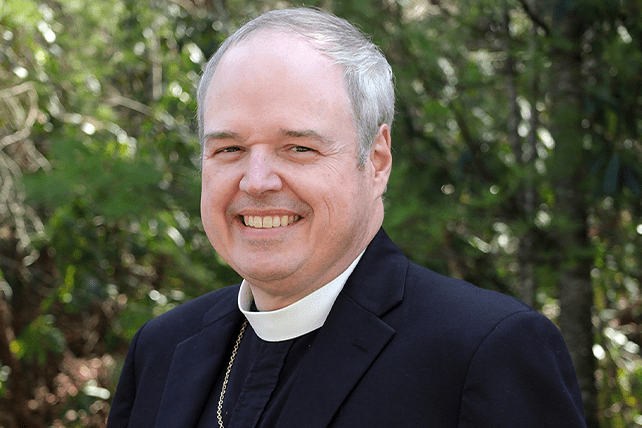







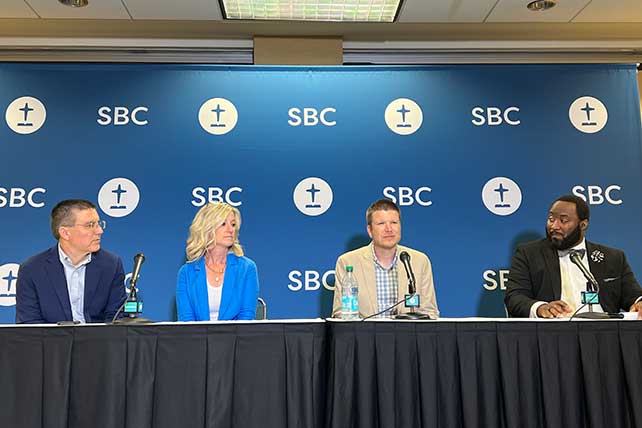

 Our expectations for a new season of life are often founded on hope and rooted in a desired change from what we’ve seen before. For example, it could be the hope that things improve with our health, physically or relationally. Perhaps it’s the hope that our
Our expectations for a new season of life are often founded on hope and rooted in a desired change from what we’ve seen before. For example, it could be the hope that things improve with our health, physically or relationally. Perhaps it’s the hope that our 

